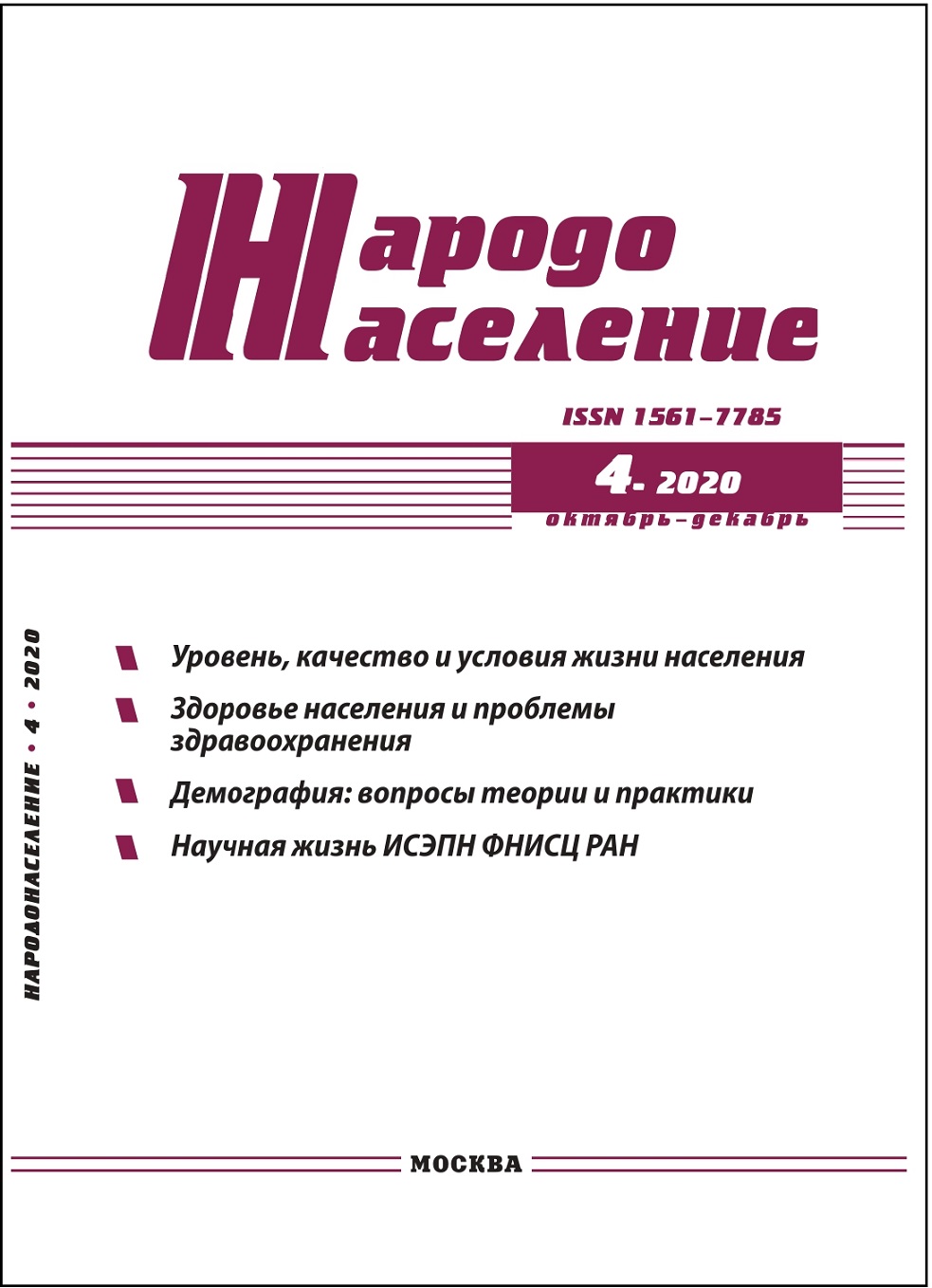Застройка побережий: социо-эколого-экономическая специфика
Научная статья
Для цитирования
Гордин И. В., Рюмина Е. В. Застройка побережий: социо-эколого-экономическая специфика // Народонаселение. 2020. Том 23. № 4. С. 50-60. DOI: https://doi.org/10.19181/population.2020.23.4.5
Аннотация
преимущественное расселение по берегам водных объектов (рек, озер, морей), продиктованное разнообразными производственными и рекреационными факторами, всегда сопровождалось экологическими нарушениями. Специфический комплекс социо-эколого-экономических проблем возник с началом массовой коттеджной застройки российских побережий. При этом определенные экологические риски были проигнорированы. До этого времени в стране действовали строгие ограничения по приближению жилищ к воде и эксплуатационным режимам домовладений водоохраной зоны. Особо жесткий регламент строительства и эксплуатации жилищ существовал для побережий источников коммунального водоснабжения городов и в курортно-оздоровительных зонах. Сегодня застройка берегов представляет собой во многом хаотический процесс, сопровождающийся широким набором правовых и экологических нарушений. Критическое положение сложилось на источниках водоснабжения Москвы и других городов России, на морских побережьях Краснодарского края и Республики Крым. Жители престижных береговых поселков образуют сегодня многочисленную социальную группу со специфическим менталитетом. Часто в его основе — стойкое желание проигнорировать эколого-правовые императивы ради обладания дорогостоящей недвижимостью и элитарными условиями рекреации. Методология исследования ситуации, основанная на общих принципах системного анализа социо-эколого-экономических процессов, позволяет существенно сблизить интересы этой социальной группы с интересами государства. Предложена концепция оздоровления обстановки через доказательство неизбежного обесценивания береговой недвижимости вследствие экологической деградации водных объектов, на берегах которых ведется нерегулируемая застройка. Одинаково важными факторами обесценивания при этом являются как ухудшение рекреационного климата вплоть до полного дискомфорта, так и непосредственные экономические потери населения, выраженные падением цен земельных участков и домовладений на рынке недвижимости.
Ключевые слова:
социо-эколого-экономические системы, экологический кризис, рекреационные интересы населения, застройка побережий, рынок недвижимости
Литература
1. Яницкий, О.Н. Экологические катастрофы: структурно-функциональный анализ / О. Н. Яницкий. — Москва: ИС РАН, 2013.— 258 с. // Официальный сайт Института социологии РАН: [сайт]. — URL: http://www.isras.ru/publ.html?id=2794 (дата обращения 21.02.2020).
2. Моделирование социо-эколого-экономической системы региона / под ред. В. И. Гурмана, Е. В. Рюминой. — М.: Наука, 2001. — 175 с. ISBN 5-02-013047-8.
3. Гордин, И.В. Кризис водоохранных зон России / И. В. Гордин. — Москва: Физматлит, 2006. — 196 с. ISBN 5-94052-110-Х.
4. Гордин, И. В. Строительство на землях водного фонда и вектор развития экологического права / И. В. Гордин // Экономика природопользования. — 2006. — № 5. — С. 40-48.
5. Гордин, И.В. Эколого-этические тупики потребительского соревнования / И. В. Гордин // Альманах «Зеленый мир». — 2011. — № 5-6. — С. 4-6.
6. Рюмина, Е.В. Экономический анализ ущерба от экологических нарушений / Е. В. Рюмина. — Москва: Наука, 2009. — 331с. ISBN 978-5-02-036794-4.
7. Седова, Н.Н. Гражданский активизм в современной России: форматы, факторы, социальная база / Н. Н. Седова // Социологический журнал. — 2014. — Т. 20. — № 2. — С. 48-71.
8. Щербакова, И.В. Особенности территории проживания как фактор гражданского участия / И. В. Щербакова // Социологический журнал. — 2017. — Т. 23. — № 3. — С. 64-79.
9. Бельчиков, Я.М. Деловые игры / Я. М. Бельчиков, М. М. Бирштейн. — Рига: АВОТС, 1989. — 304 с. ISBN 5-401-00155-Х.
10. Новые финансовые механизмы сохранения биоразнообразия: итоги проекта «Сохранение биоразнообразия в Российской Федерации». — Москва: Экопроект, 2002. — 204 с. ISBN 5-88356-016-4.
11. Рюмина, Е В. Экологические издержки экономики / Е. В. Рюмина. — Москва: МБА, 2011. — 111 с. ISBN 978-5-902445-69-2.
12. Меледина, Е. Десять лет кризиса рынка загородной недвижимости / Е. Меледина // Газета «Ведомости». — 2019. — 22 ноября. — С. 7.
2. Моделирование социо-эколого-экономической системы региона / под ред. В. И. Гурмана, Е. В. Рюминой. — М.: Наука, 2001. — 175 с. ISBN 5-02-013047-8.
3. Гордин, И.В. Кризис водоохранных зон России / И. В. Гордин. — Москва: Физматлит, 2006. — 196 с. ISBN 5-94052-110-Х.
4. Гордин, И. В. Строительство на землях водного фонда и вектор развития экологического права / И. В. Гордин // Экономика природопользования. — 2006. — № 5. — С. 40-48.
5. Гордин, И.В. Эколого-этические тупики потребительского соревнования / И. В. Гордин // Альманах «Зеленый мир». — 2011. — № 5-6. — С. 4-6.
6. Рюмина, Е.В. Экономический анализ ущерба от экологических нарушений / Е. В. Рюмина. — Москва: Наука, 2009. — 331с. ISBN 978-5-02-036794-4.
7. Седова, Н.Н. Гражданский активизм в современной России: форматы, факторы, социальная база / Н. Н. Седова // Социологический журнал. — 2014. — Т. 20. — № 2. — С. 48-71.
8. Щербакова, И.В. Особенности территории проживания как фактор гражданского участия / И. В. Щербакова // Социологический журнал. — 2017. — Т. 23. — № 3. — С. 64-79.
9. Бельчиков, Я.М. Деловые игры / Я. М. Бельчиков, М. М. Бирштейн. — Рига: АВОТС, 1989. — 304 с. ISBN 5-401-00155-Х.
10. Новые финансовые механизмы сохранения биоразнообразия: итоги проекта «Сохранение биоразнообразия в Российской Федерации». — Москва: Экопроект, 2002. — 204 с. ISBN 5-88356-016-4.
11. Рюмина, Е В. Экологические издержки экономики / Е. В. Рюмина. — Москва: МБА, 2011. — 111 с. ISBN 978-5-902445-69-2.
12. Меледина, Е. Десять лет кризиса рынка загородной недвижимости / Е. Меледина // Газета «Ведомости». — 2019. — 22 ноября. — С. 7.
Статья
Поступила: 17.07.2020
Опубликована: 11.12.2020
Форматы цитирования
Другие форматы цитирования:
APA
Гордин, И. В., & Рюмина, Е. В. (2020). Застройка побережий: социо-эколого-экономическая специфика. Народонаселение, 23(4), 50-60. https://doi.org/10.19181/population.2020.23.4.5
Раздел
УРОВЕНЬ, КАЧЕСТВО И УСЛОВИЯ ЖИЗНИ НАСЕЛЕНИЯ








